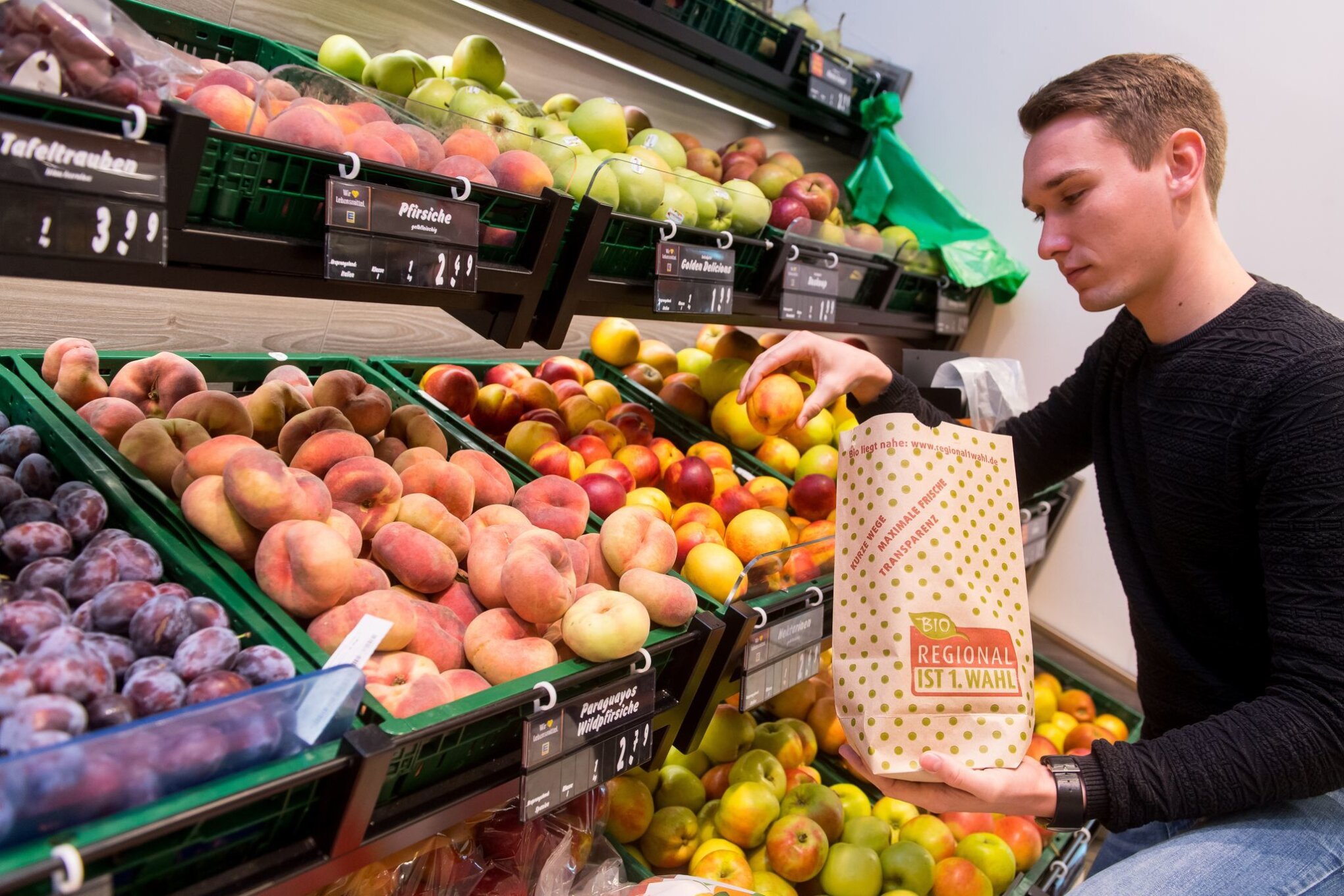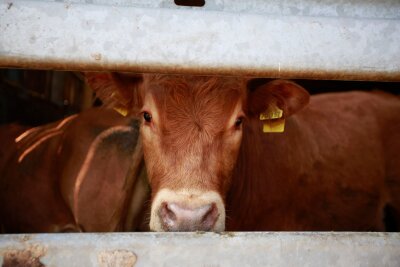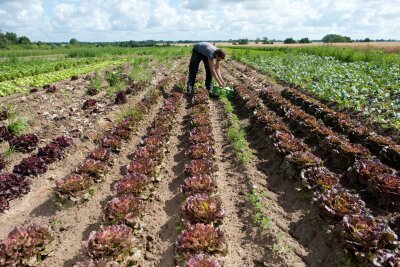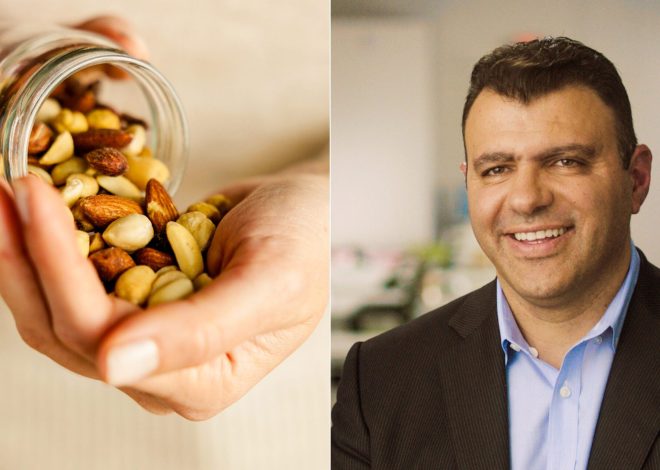
A vegetarian diet is so useful
A balanced, healthy diet includes a large proportion of fruit and vegetables. Experts recommend five servings per day. But more and more people are going even further and opting for a purely plant-based diet. Why?
A vegetarian diet benefits many Advantages:
- for your own health
- for the climate
- for the economy
- to combat world hunger
7 facts that speak for a vegetarian lifestyle:
1. Vegetarian diet protects the climate
According to the Meat Atlas 2021, meat consumption has more than doubled worldwide in the past 20 years. In 2018, 320 million tons of meat were consumed. By 2028, consumption will probably grow by another 13 percent.
The consumption of resources for meat production shows how immense the consequences are for the earth and climate.
“In Germany, five percent of greenhouse gas emissions can be directly attributed to livestock farming,” says Knut Ehlers, agriculture expert at the Federal Environment Agency.
Indirect emissions, for example in the form of CO2, are not included here. These arise, for example, from the production of synthetic fertilizer or from the agricultural use of former moor sites for the cultivation of animal feed.
Are you wondering how greenhouse gas emissions are caused by animal husbandry? Roughly speaking, they are made up like this:
- Methane gas occurs particularly during the digestive process of ruminants such as cattle, sheep and goats.
- Nitrous oxide (N2O) is caused by storage and fertilization with animal excretions such as manure.
By the way: Milk consumption also has a negative impact on the climate. However, the effects depend on the type of husbandry.
A research group at the Christian-Albrechts University of Kiel (CAU) concluded in a meta-analysis that the carbon footprint is smaller when dairy cows are kept on pasture. Keeping them in stables causes more emissions. The reason for this is the energy-intensive cultivation of feed.
Tip: You can use the calculator from the Federal Environment Agency to determine what ecological footprint you leave behind with your lifestyle.
2. Vegetarian diet saves resources
Farm animals leave a huge ecological footprint. For the Production of one kilogram of beef According to the Meat Atlas 2021, on average 15,415 liters of water spent.
For comparison: Farmers need…
- Vegetables on average 322 liters water per kilo.
- fruits on average 962 liters water per kilo.
- legumes around 4055 liters water per kilo.
The average water consumption per kilo for beef is almost ten times higher than for grain at 1644 liters.
“A plant-based diet is definitely less resource-intensive than a meat-heavy one,” says Knut Ehlers.
-

Avoiding meat is good for animal welfare and the climate. Photo: Florian Schuh/dpa-tmn
Also keep in mind the following facts:
- Meat not only produces more greenhouse gases.
- Meat also usually uses more water and energy.
- Meat requires an extremely large amount of land: globally, one third of arable land is used to grow feed crops. In Germany, the figure is almost 40 percent.
“These areas could be used to feed people directly – without having to go through the animals,” says Ehlers.
This would also make sense from a health perspective: During the so-called refining step – i.e. the conversion of plant nutrients used as animal feed into animal nutrients – around 80 percent of the nutrients are lost, depending on the animal species and feed.
In the study “Ecological footprints of food and dishes in Germany” you will find a list of foods – including energy requirements as well as greenhouse gas and water footprints.
3. Vegetarian diet promotes health
“Whether vegetarian or flexitarian – any diet that reduces our meat consumption has a positive impact on the environment and health,” says Margareta Büning-Fesel, head of the Federal Center for Nutrition (BZfE).
In 2021, average meat consumption in Germany was around 55 kilos. That was the lowest value since consumption was calculated in 1989 – but still more than a kilo per week.
For comparison: The German Nutrition Society (DGE) recommends around 300 to 600 grams of meat per person per week. So she considers around half of this value or less to be acceptable for health reasons.
A plant-based diet brings health benefits. According to the expert, vegetarians suffer less often from:
- Overweight
- diabetes
- Diseases of the cardiovascular system
4. Vegetarian diet as an opportunity for the economy
Compared to the total population in Germany, twice as many 15 to 29 year olds eat a vegetarian or vegan diet – this is what evaluations of the Meat Atlas 2021 show.
The increasing demand of the younger generation for plant-based products and meat alternatives opens up new opportunities, but also requires a rethink.
“We need a phasing-out strategy for intensive animal husbandry,” says Ehlers. A large part of German farmers’ income is based on animal production.
In recent decades, the focus has been on producing more and more efficiently – and has been strongly focused on exports. “We’ve known for a long time that we have to rethink.”
-

There are now many plant-based alternatives for cow’s milk. Photo: Zacharie Scheurer/dpa-tmn
Meat producers must consider alternatives and plan for the long term. “Sustainable agriculture must optimally manage the ecological functions of nature and biodiversity,” says Büning-Fesel from the BZfE.
“We need to achieve an ecological intensification of agriculture that is appropriate to the location, that grows a wide variety of different foods and also improves the livelihoods of farmers,” explains Büning-Fesel.
Farmers should increasingly look for alternatives in plant production: they could grow legumes such as lupins, chickpeas, soy and quinoa domestically and use them for the production of meat substitute products, for example.
In view of the increasing demand for vegetarian foods, this is definitely a lucrative business.
5. Vegetarianism can prevent pandemics
Factory farming operations provide an ideal breeding ground for the spread of pathogens.
The World Organization for Animal Health (OIE) estimates that 60 percent of all infectious diseases in humans are zoonoses.
Zoonoses are infectious diseases that can be transmitted from humans to animals and from animals to humans. According to the Meat Atlas 2021, they cause around:
- 2.5 billion cases of illness
- 2.7 million deaths
Zoonoses are promoted, among other things, by humans increasingly encroaching on the habitats of wild animals in order to use the areas for agricultural production.
The more the habitats of wild animals and humans overlap, the greater the risk of becoming infected from infected animals, the report warns.
Well-known “animal-to-human epidemics” include:
- Bird flu (H5N1)
- Severe Acute Respiratory Syndrome (SARS)
- Middle East Respiratory Syndrome (MERS)
- “Mad cow disease” (BSE)
- Covid-19
-

Agricultural land should be better used for food rather than animal feed. Photo: Klaus-Dietmar Gabbert/dpa-tmn
6. Vegetarianism leads to less hunger in developing countries
“Global food production is in principle sufficient to cover the calorie needs of the world population, but food is distributed unequally and often unfairly,” explains Büning-Fesel.
According to the Fleischaltlas 2021, only around 40 percent of the most important harvested crops are left for people to eat. The need for animal feed and the associated arable land represents an enormous problem for developing countries.
“The way we eat has an impact on the food security of people in the Global South,” says Andrea Sonntag, consultant for food policy at Welthungerhilfe.
This is how poverty comes about:
- Western countries import grains and oilseeds such as soy. Or they buy up agricultural land in developing countries because they cannot meet the large demand for animal feed on their own soil alone.
- As a result, the local population in the Global South lacks the space to grow their own food. It is not uncommon for the original users of the cultivation areas – small farmers, nomad herders, indigenous peoples – to become victims of land grabs.
- As a result, the locals lose their livelihood. The result is poverty and hunger.
“In addition, we are also depriving people in poorer regions of their water,” says Andrea Sonntag. Agriculture is the world’s largest water consumer. “And the large-scale cultivation of animal feed for meat production is exacerbating the shortage in countries in the Global South that already suffer from water shortages.”
7. There are alternatives and solutions to the problem
approaches for new nutritional strategies are there many. Two examples:
- Consume more plant-based protein sources such as legumes
- Use insects as feed or food
Büning-Fesel refers to the so-called Planetary Health Diet (PHD). This is a menu developed by scientists to protect the health of people and the planet alike.
“This diet is not vegetarian or vegan, but the proportion of animal products is significantly lower than what is currently consumed,” said the head of the Federal Center for Nutrition. “The PHD largely agrees with the recommendations of the German Nutrition Society.”
-

Rethinking your food: A meat-free kitchen protects the climate and the environment. Photo: Mascha Brichta/dpa-tmn
The menu shows that a fundamental change in our diet is necessary in order to feed everyone on earth sustainably and healthily by 2050.
A PHD diet includes the following as examples:
Daily:
- around 300 grams of vegetables
- 232 grams of whole grains
- 75 grams of legumes
- 250 milliliters of whole milk or a small slice of cheese
- 50 grams of nuts
Weekly:
- one or two eggs
- about 200 grams of fish fillet
- a chicken breast fillet – as an example of the amount of poultry
- 196 grams of beef
Conclusion: Eating less meat would be better
Whether a purely plant-based diet or a flexitarian diet – in order to contribute to protecting the planet, our own health and the well-being of humanity, we don’t all have to become vegetarians. But: “One Halving meat consumption would have enormous positive effects on the environment,” says Ehlers.

Ethel Purdy – Medical Blogger & Pharmacist
Bridging the world of wellness and science, Ethel Purdy is a professional voice in healthcare with a passion for sharing knowledge. At 36, she stands at the confluence of medical expertise and the written word, holding a pharmacy degree acquired under the rigorous education systems of Germany and Estonia.
Her pursuit of medicine was fueled by a desire to understand the intricacies of human health and to contribute to the community’s understanding of it. Transitioning seamlessly into the realm of blogging, Ethel has found a platform to demystify complex medical concepts for the everyday reader.
Ethel’s commitment to the world of medicine extends beyond her professional life into a personal commitment to health and wellness. Her hobbies reflect this dedication, often involving research on the latest medical advances, participating in wellness communities, and exploring the vast and varied dimensions of health.
Join Ethel as she distills her pharmaceutical knowledge into accessible wisdom, fostering an environment where science meets lifestyle and everyone is invited to learn. Whether you’re looking for insights into the latest health trends or trustworthy medical advice, Ethel’s blog is your gateway to the nexus of healthcare and daily living.



